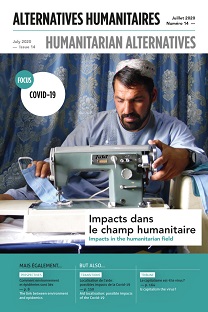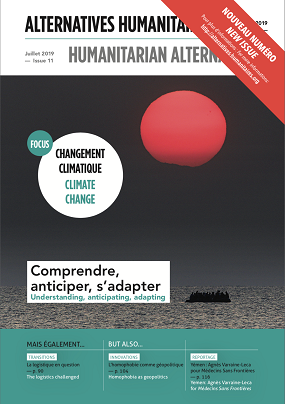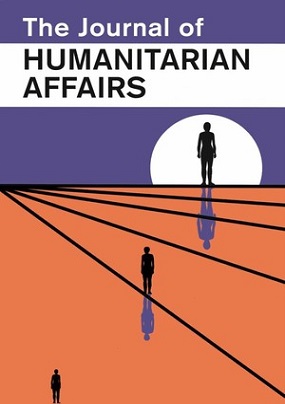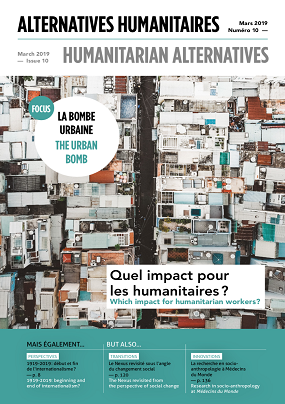
Article
Tough choices: moral challenges experienced by aid workers during the Covid-19 pandemic
Françoise Duroch, Miriam Kasztura
23.07.2020The truly unprecedented nature of the pandemic has mobilised and confused humanitarian NGOs and their staff as much. Forced inaction mixed with setting up programmes within a context of high...
Article
International aid in the Covid era: the need for transparency
Duncan McLean, Françoise Duroch
11.06.2020The scale and spread of the Covid-19 pandemic, combined with the large number of deaths it has caused, have created a toxic mix of rumour and innuendo – further complicating aid operations that...
Article
Medical care in armed conflict: Perpetrator discourse in historical perspective
Duncan McLean
27.05.2020Although the Geneva Conventions have been successively revised since 1864, norms regarding the protection of medical care have been frequently disregarded. Despite current claims of international...
Article
L’épidémiologie, le chaînon manquant des curriculums scolaires
Françoise Duroch
06.04.2020Coronavirus today, Ebola yesterday, the epidemiology of infectious diseases remains an unknown for the population and is not taught much in primary and secondary schools, notes Françoise Duroch of...
Article
Plagues of Prejudice
Duncan McLean
16.03.2020In December 1899 Honolulu-based physicians attributed two deaths to bubonic plague, and a local paper duly announced that the ‘scourge of the Orient’ had arrived. Within months a first plague...

Article
Choices at the time of the climate emergency
UREPH contribution
23.07.2019Knowing about the discussions in progress at Médecins Sans Frontières, as well as the actions it intends to implement to adapt to climate change, provides precious insight. Though they speak in...

Article
War Breaks Out: Interpreting Violence on Healthcare in the Early Stage of the South Sudanese Civil War
UREPH contribution
01.05.2019This article seeks to document and analyse violence affecting the provision of healthcare by Médecins Sans Frontières (MSF) and its intended beneficiaries in the early stage of the current civil...

Article
Overcoming barriers for treating people who use drugs in an urban setting
UREPH contribution
29.03.2019Reaching drug users in urban contexts is as much a challenge as it is a social and health requirement. In Maputo, the capital of Mozambique, Médecins Sans Frontières has developed a medical...

Article
A humanitarian approach to travel medicine?
Marta Balinska
28.06.201928 June 2019: UREPH is pleased to announce the publication of this article by Marta Balinska.

Article
Humanitarian implications of a re-assertion of State sovereignty
Duncan McLean
20.11.2018Whilst there is indeed a trend towards the strengthening of State sovereignty, this concept is more multifaceted and ambivalent than it might appear. The author invites us to take stock of its...

Book
Humanitarian ethics in Médecins Sans Frontières/Doctors Without Borders: Discussing dilemmas and mitigating moral distress
Philippe Calain
30.08.2018As a humanitarian medical organization, Médecins Sans Frontières (MSF) intervenes in places around the world affected by conflict and crisis. Although we are guided by humanitarian principles, our...

Book
Challenges of Instituting Effective ‘Medevac’ Policies
Duncan McLean
01.11.2017The 2014-2015 Ebola epidemic in West Africa was an unprecedented medical and political emergency that cast an unflattering light on multiple corners of government and international response. Fear,...